*
Back in '39-'40 ..... not one bomb was dropped on Germany's main industrial complex, which is odd because if the allies really, really, really wanted to have stopped Germany in its alleged, initial war tracks, the easiest way for the allies to do so, next to being the most logical of course, would have been to take out Germany's main industrial complex. Problem solved. End of story.
They didn't.
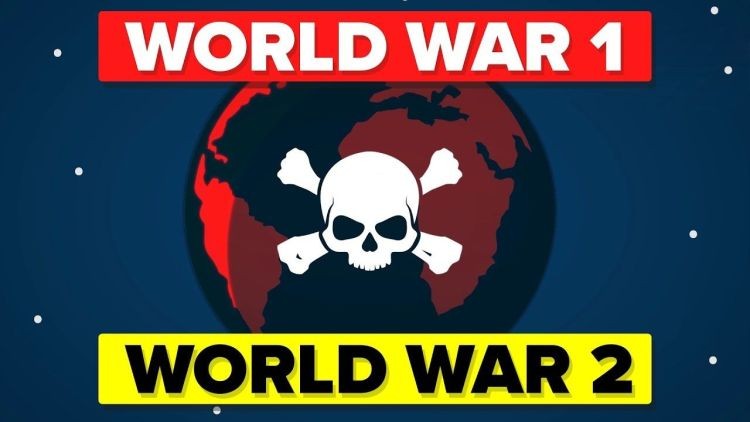
Cui bono?
What really matters is outcome; who was the big winner of WW II, and how? What was established that without the war could not have come to pass?
While we're at it; who was the big winner of WW I, and how? What was established that without that war could not have come to pass?
BTW, who was the big winner of the 'cold war', and how? What was established that without that 'war' could not have come to pass?
Interestingly, the answer to all three turns out to be the same.
Axiom
When some thing happens once, it doesn't have to happen twice. When a thing happens twice, it'll happen thrice.
Or
When some thing happens once, then it might be a random occurence. When that thing happens twice, then it might be a coincidence. When the same thing happens thrice or frice, it is neither a random occurence nor a coincidence, then it is a pattern or structural/recurring, intentional even.
WW I
World War I and the Great Depression were significant factors that contributed to the conditions that spawned the Second World War. These two events caused a major repositioning of world power and influence. Prior to the First World War, Europe was the world center of industry and capital. The devastation that was visited on most of Europe as a result of the heavy fighting and massive death toll did damage from which most of Europe never really recovered.
Prior to 1914, Britain, France and Germany were the industrial and financial capitals of the world. After World War I, these countries lost their pre-eminent positions and the United States filled the vacuum. America was thus the big winner of the war. Britain and France had been forced to borrow money from the U.S. in order to finance their own war efforts. Germany was saddled with huge reparation payments to most of the victim countries and the Allies. Before the war, America was $4 billion in debt to European countries; after the war it was owed $10 billion by countries in Europe. America became the major global supplier of money and industrial goods, a position that she never relinquished.
.
With the rise in American dominance of world markets, the medium of trade also changed drastically. Where Britain had previously traded in goods with the world, America was self sufficient in food, minerals and industry and so demanded cash for her exports. Europe financed its purchases from the U.S. with money she collected from Germany’s war reparations. Germany borrowed heavily from America to make those payments. During the 1920’s, Americans had invested over 1 billion dollars in Germany.
North American farmers and manufacturers had boom times following WW I. A crippled Europe bought most of its foodstuffs and manufactured goods from the United States and Canada. Many North American farmers and industrialists borrowed heavily in order to finance better and bigger machinery to meet the increased demand. Europe quickly rebuilt her factories and farms and in 1929 there was 15.9 million tons of unsold wheat in America, Canada and Argentina.
The miracle of technology was also spreading to many other nations. Large plantations in East India were efficiently producing huge amounts of rubber. Modern farm techniques helped Java to produce record crops of sugar. Farmers in Australia, New Zealand and the Americas faced a new problem: overproduction and falling prices. Lower earnings meant that these food producers could no longer afford the cars, radios and other appliances the overheated economy was producing.
The Crash
October 24, 1929 came, and is known as “Black Thursday”. That was the day the New York stock market crashed. People who held stocks had bought them on margin. That meant that they owed their lender for the difference between the stocks’ value and the price at which they had been purchased. Desperate to cut their losses, investors swarmed the exchange in an effort to sell their shares before the value tumbled even further.
The financial crisis in America had worldwide consequences. The world’s bankers stopped lending and called in all of their loans. 5,000 American banks and many more in other countries went bankrupt. Factories closed and farmers could not sell their produce or even feed their livestock. Gloom and despair quickly replaced the optimism of the twenties.
The reaction of nations to the terrible financial straits of The Depression had a big impact on international cooperation. Countries erected stiff import duties to protect their home economies. America became isolationist. Britain formed a “Commonwealth” with former colonies like Canada and Australia. Meanwhile, Russia, isolated since its Communist Revolution, struggled on its own and built a large industrial complex while the western world was mired in The Depression.
WW II
In Germany, conditions became miserable as well. One out of three German workers was unemployed. The Hitler Administration captured the hopes and imaginations of a citizenry that was totally demoralized. The Administration promised to end the humiliating conditions caused by the German defeat in WW I. It got Germany back into the factories and rebuilt the shattered German military machine. These aggressive, even racist, policies made the prospect of future hostilities almost inevitable.
Japan was selling 90% of its silk and much of its goods to the United States in 1929. The Depression destroyed that market which had provided Japan with two-fifths of her export income. Military leaders took control of the government and in 1931 Japan invaded China, looking for more raw materials and bigger markets for its factories.
In 1931 Japan seized Manchuria and expanded into China until 1937. The Japanese plan was to oust all of the European colonists from Southeast Asia and create a new economic trading zone. Germany annexed Austria and western Czechoslovakia with only vocal protests from England and France. When the Nazis marched into Poland on September 1, 1939, England and France declared war.
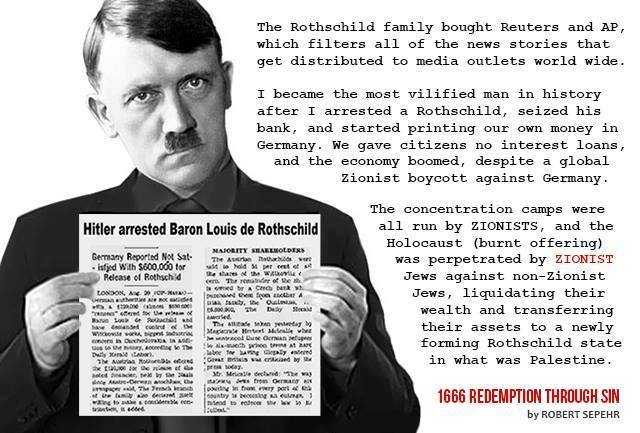 http://www.hirhome.com/israel/leaders0.htm
http://www.hirhome.com/israel/leaders0.htm
Important Note: whenever you read 'Jews' in contexts like these, think Zionists, or rather, Khazars (Chazars) https://vriendenplek.nl/read-blog/623_de-khazaarse-maffia-km
https://content.time.com/time/subscriber/article/0,33009,761347,00.html
https://www.jta.org/archive/baron-rothschild-switzerland-after-release-from-vienna-prison
https://www.jta.org/archive/baron-louis-de-rothschild-dead-paid-21000000-ransom-to-nazis
Post 1945
World War II would bring an end to The Depression everywhere. When the expansionist policies of Germany, Italy and Japan were finally challenged by, first Europe, then America, industry was ignited for the production of arms and resources to equip a fighting force.
While America was slow to react to Europe’s war -and without the Japanese attack on Pearl Harbor, America may not have entered the war, apparently- the entry of the U.S. into the war, on two fronts, provided the necessary might for the west to emerge victorious and did put America on top once more.
To maintain that position, the so-called Cold War ensued, untill it ended in 1989/1991 and America's hegemony started to crumble, again... leading up to the financial crisis of 2007/8, putting the U.S. in dire straits, again ... the same situation they were in prior to WW I and II ...
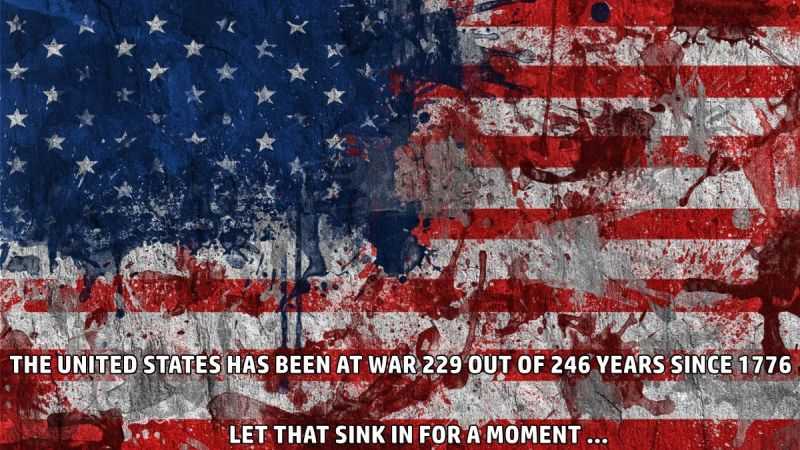 https://en.m.wikipedia.org/wiki/Timeline_of_United_States_military_operations
https://en.m.wikipedia.org/wiki/Timeline_of_United_States_military_operations
Cui prodest scelus, est fecit!
And here we are today, with the U.S. heavily indebted, its economy seriously declined, its banks insolvent, the petrodollar on the verge of collapse, it's oil-currency contract ending in June 2024 and the BRICS countries on the rise and expanding with its own monetary system ...
So, the U.S. pushing for another war, preferably with Russia, and, by extention, the E.U.? Of course not, why would the U.S. want to do that?
It is not as if that has helped them before, right? Right.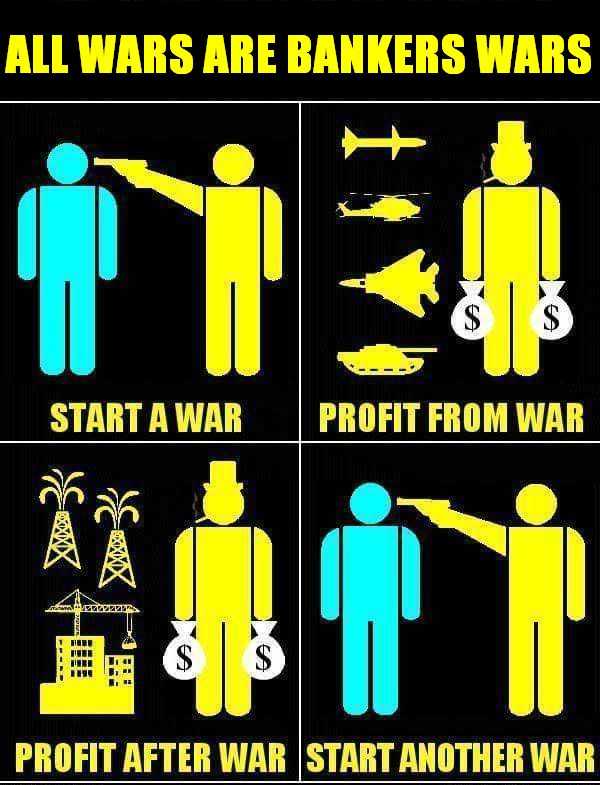 https://www.youtube.com/watch?v=BrKf9nYeXT0
https://www.youtube.com/watch?v=BrKf9nYeXT0
Unipolar vs Multipolar
So, this 'war' with Ukraine isn't so much about Ukraine itself, Ukraine is 'merely' "the weapon of choice". It's really about Germany, again, as it has been ever since the U.S. was established (1776), because Germany has always been Europe's economic powerhouse.
Imagine Germany, in effect Europe, becoming all friendly with Russia, backed-up by China (Asia), it would establish an Eurasian economic powerhouse which would dwarf the U.S. and render it obsolete -and by extention the U.N.- and isolated, from which it will never recover.
No wonder then, the U.S. - and by extention the U.N. and the E.U. - will do everthing in their power to maintain the status quo. It's really a war, by proxy, between the old way vs the new way; between the old unilateralism vs the new multilateralism. - https://vriendenplek.nl/read-blog/1787 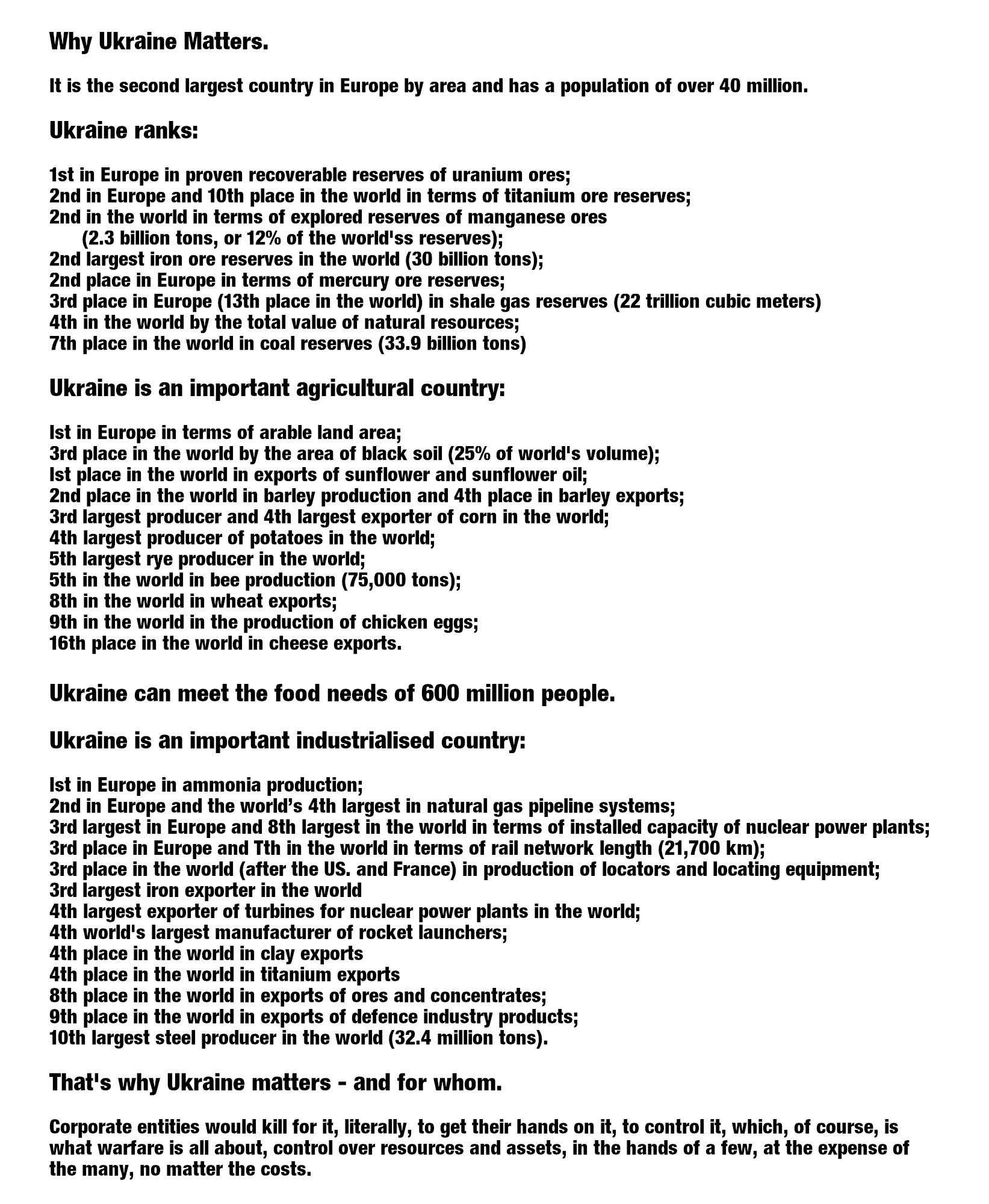
Related:
'War, Warfare and its Directives'
https://vriendenplek.nl/read-blog/1308
'Oorlog en Oorlogsvoering : Richtlijnen en Doelstellingen' (Dutch)
https://vriendenplek.nl/read-blog/1335
'De Pathocratie' (Dutch)
https://vriendenplek.nl/read-blog/1221
https://www.deepl.com/nl/translator
See also: 'Holodomor'
Ref.
Between Two Ages: America's Role in the Technetronic Era. New York: Viking Press, 1970
The Grand Chessboard: American Primacy and Its Geostrategic Imperatives. New York: Basic Books, 1997
See: Zbigniew Brzezinski
- Biblio:
https://vriendenplek.nl/read-blog/666
https://vriendenplek.nl/read-blog/1177
https://vriendenplek.nl/read-blog/2310
https://vriendenplek.nl/read-blog/3188
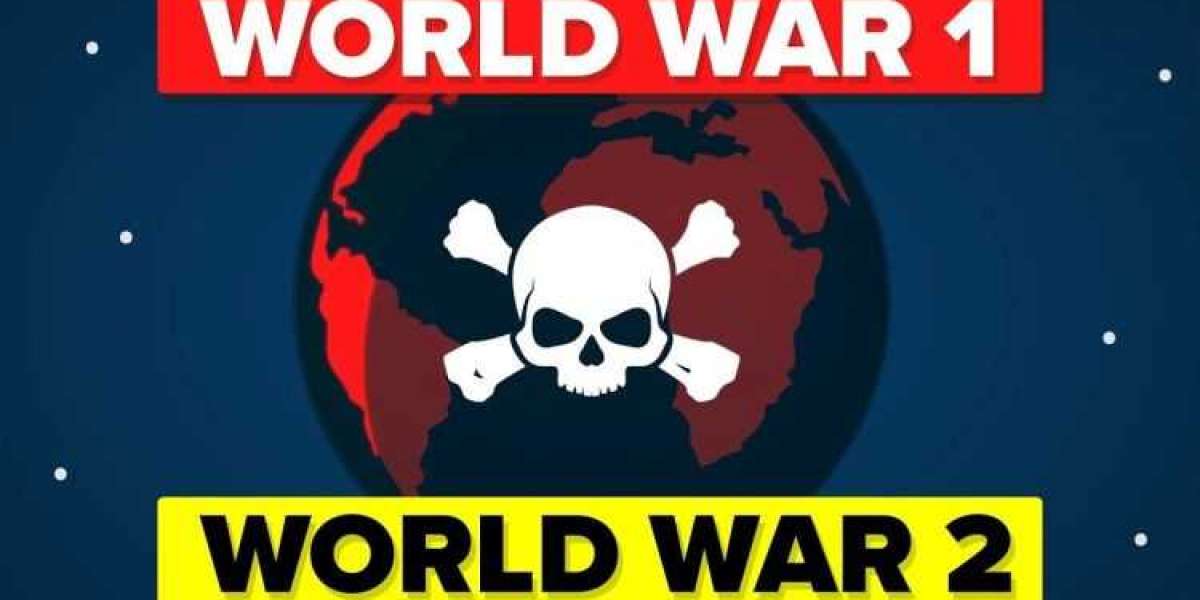


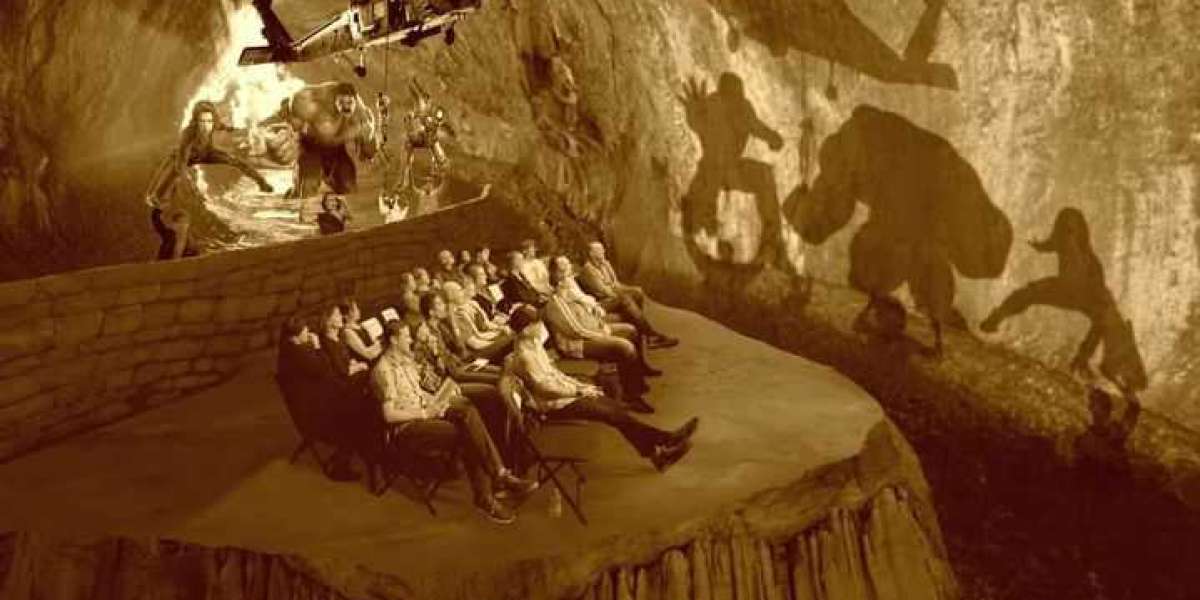


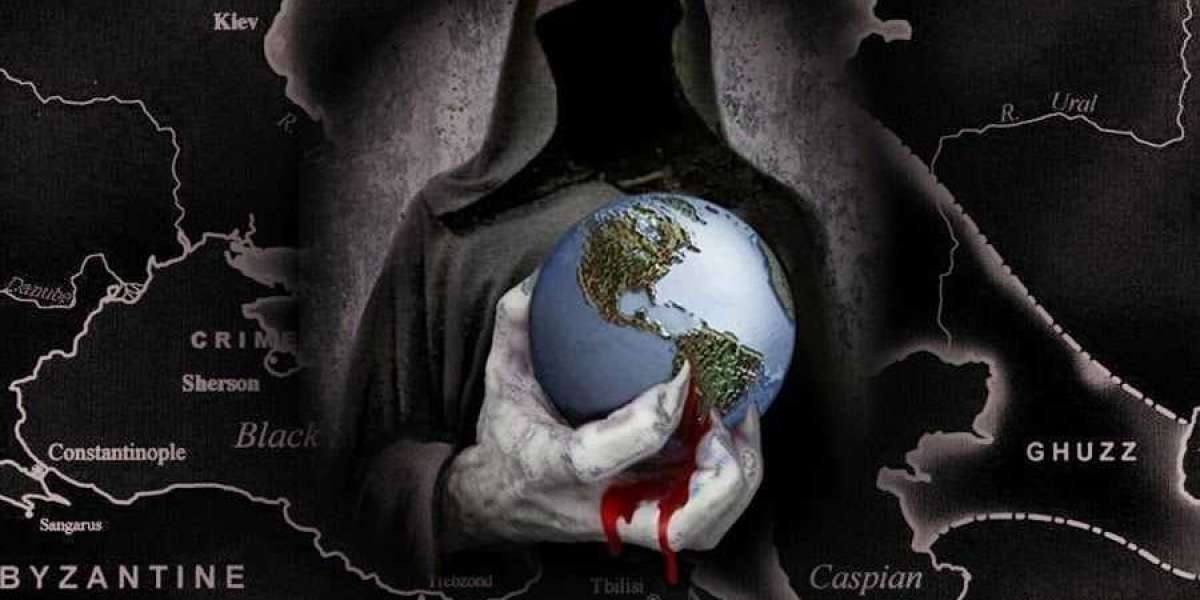
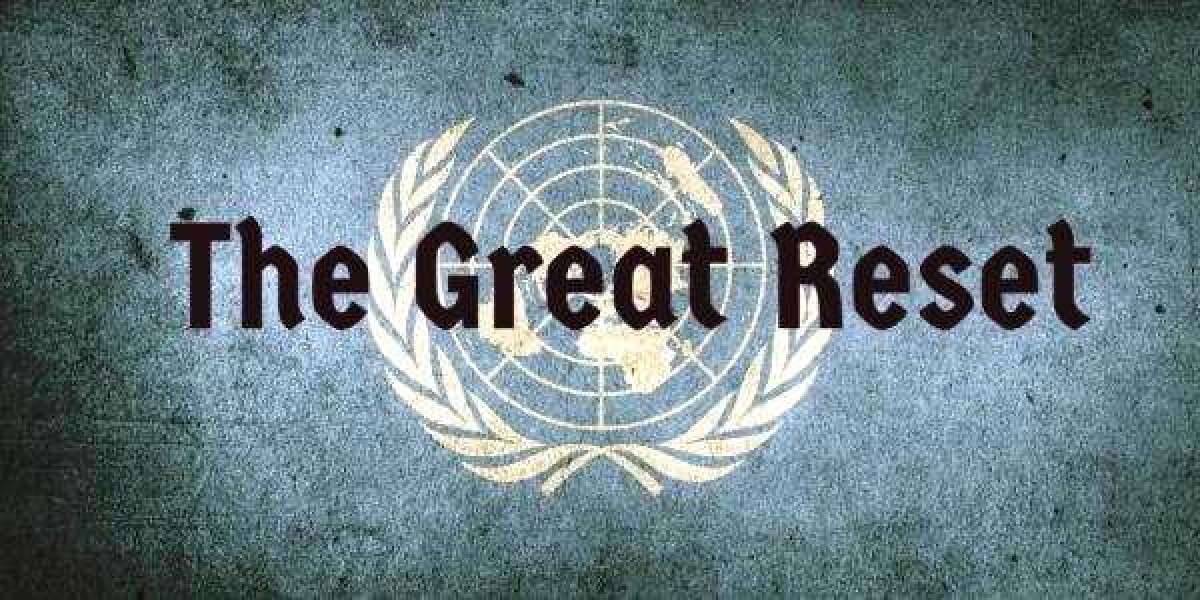


MarianKamp 2 jr
Een goed artikel. Gelijk overal op andere platforms gedeeld.